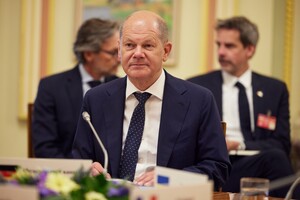Russia's war against Ukraine acutely raised the question of the unity of decision-making in the EU.

Federal Chancellor of Germany Olaf Scholz< /strong> in his column for the German newspaper Frankfurter Allgemeine, he spoke in favor of rejecting the principle of unanimity in EU foreign policy decisions.
Scholz argues in the column that Russia's war against Ukraine has raised the question of unity within the EU even more acutely and that the countries bloc, if they want, can resort to a “selfish blockade” of joint decisions.
“We simply cannot afford to continue to maintain national vetoes, for example, in foreign policy – if we want to be heard in the world, where major geopolitical players compete,” the chancellor emphasized.
He also noted that Germany will soon make its proposals regarding the EU's common migration policy, the development of EU defense, technological sovereignty and democratic stability of the bloc's countries.
Read also: The European Union will build a bunker for negotiations to protect itself I am from Russian spies – mass media
The discussion about the rejection of the principle of unanimity was especially intensified after the agreement of the sixth package of sanctions against Russia – Hungary blocked it for a long time, demanding exceptions to the oil embargo. Hungarian Prime Minister Viktor Orban stated that this would endanger energy security and called the new package of sanctions against the Russian Federation a “historic mistake.” Also, due to the position of Budapest, Patriarch Kirill was not included in the list of sanctions.
Earlier it was reported that the EU spent more money on the purchase of oil, gas and coal from the Russian Federation than it sent to help Ukraine. Oil prices are rising, and the Russian ruble has become stronger.




